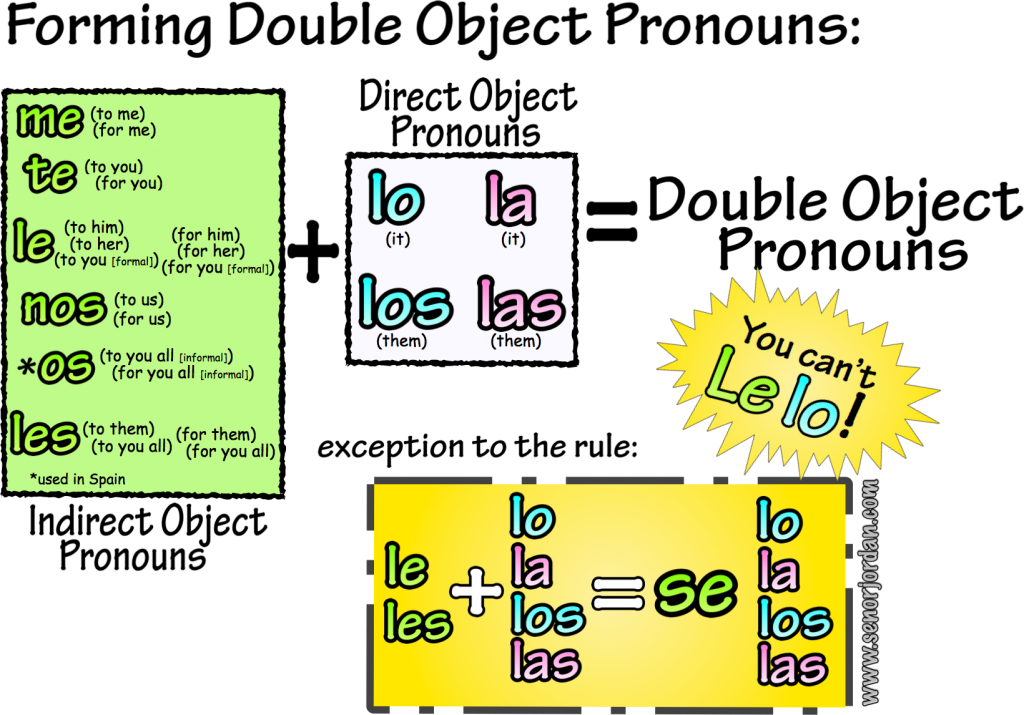In this video lesson we’re going to be practicing Double Object Pronouns.
If you aren’t sure what that means, it means we’ll be using both Direct Object Pronouns and Indirect Object Pronouns in the same sentences.
Leave any questions or comments below!
 Graphic (click to enlarge):
Graphic (click to enlarge):
